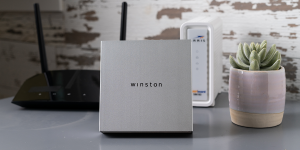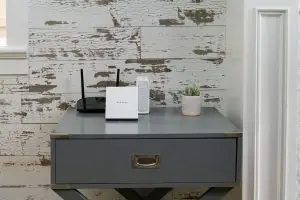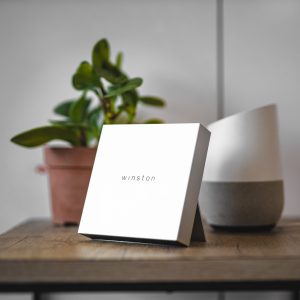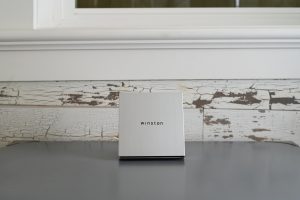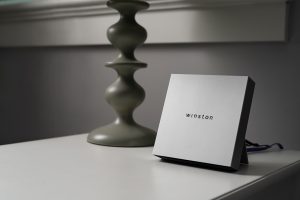If you’ve been a prepper for any amount of time, you’ve probably noticed that standard online privacy is mediocre at best; and determining the best way can be challenging.
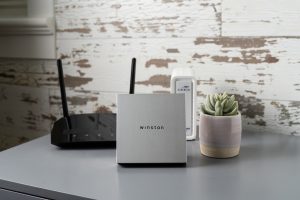
This is why we’ve decided to review one of the best online defenders out there; a defender that will keep you safe: Winston Privacy.
Most VPNs work by doing one thing and one thing only — masking your IP address. However, Winston Privacy does so much more than just that.
You not only get better security than a regular VPN, but you also get many more useful features that are not common among online security.
There are several challenges with prepping as it is; online security is one of them.
To keep your data safe, consider trying out Winston Privacy, which can prevent fingerprinting, webcam, and microphone hacks, among many other dangers.
SKIP AHEAD
Winston Privacy Review: Worth It?
The Setup is Straightforward
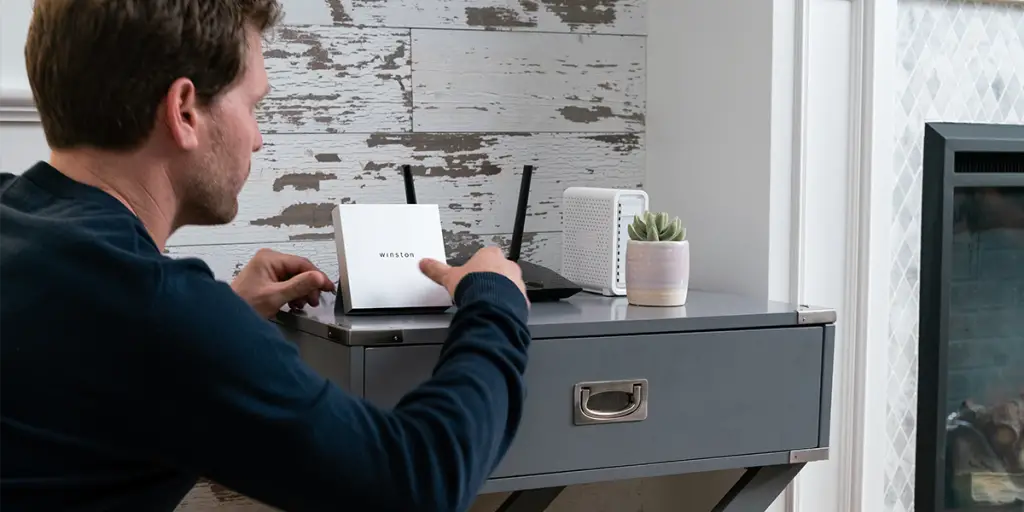
This is where Winston Privacy truly stands out. Unlike most other VPNs, Winston Privacy is a physical device.
It works by connecting the ethernet exiting the modem into the Winston Privacy device. After this, you simply connect ethernet to the router and connect it to Winston.
That’s it; there isn’t much set up after that, except for the software, which will be covered shortly.
Fortunately, it also works with a router/modem combo, just read the instructions, and you’ll be set up in no time.
Although it may take up a little space, it will take away the need to install VPNs on every device you have; that will also be explained here.
It’s a Great Filter
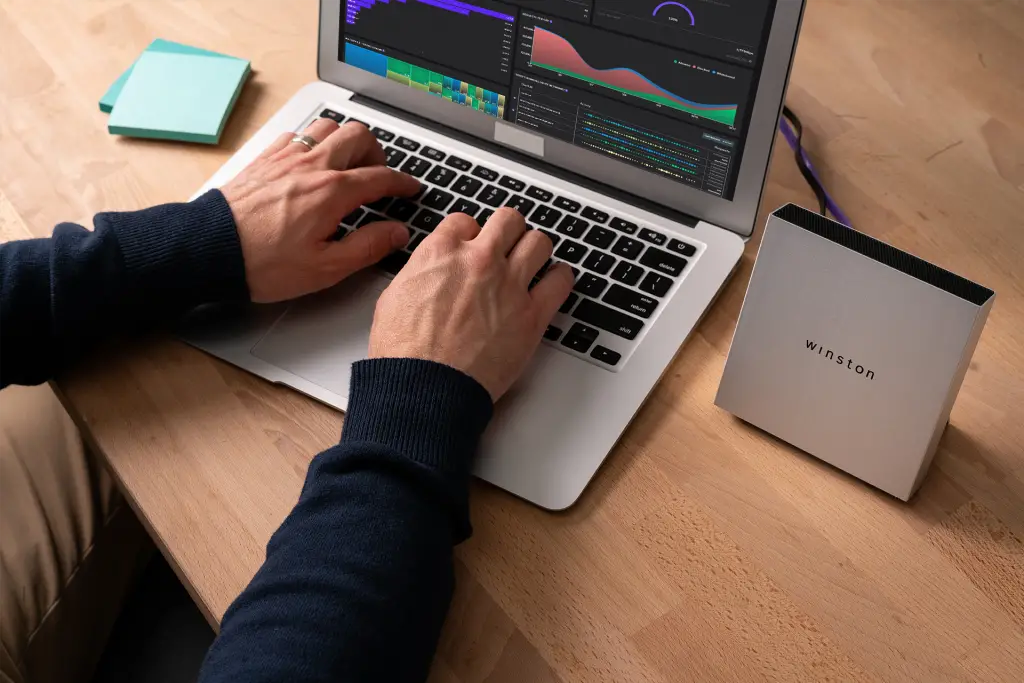
Winston Privacy works as a middleman by managing all of the data sent and received through the router.
This means that if, for example, your search for “Best Grills,” that Winston will stop the trackers that record you.
Many trackers have what are called “fingerprints,” which are essentially a virtual ID. This ID is remembered and is used each time you use the internet.
This is why you’ve searched for “XYZ” and began seeing ads everywhere for “XYZ.” It’s one of the largest security and privacy concerns today.
Most companies claim that the data taken from their customers is used for marketing. Some users are still concerned, though, and rightfully so.
This is where Winston comes in and saves the day. The Winston device has a feature that prevents fingerprinting, cookies and trackers.
It’s Not A VPN
The name may sound like it implies that it’s a VPN, but it’s not in reality. However, it still retains many of the great security features that are often found in VPNs.
It helps to mask your IP address by mixing your IP into a pool of thousands of others using P2P, for starters. This acts as a misalignment, making your location and data much harder to track down.
Most VPNs work by changing your IP to another IP located far away from your actual location, such as another country.
This is not Winston’s goal; however, how they mix the data up makes it nearly impossible for an average joe to get into.
The primary goal of Winston is to keep you safe from companies and their invasive trackers.
You can visit WebChoices, where you may find that you’re currently being tracked by hundreds, if not thousands of trackers.
The Software
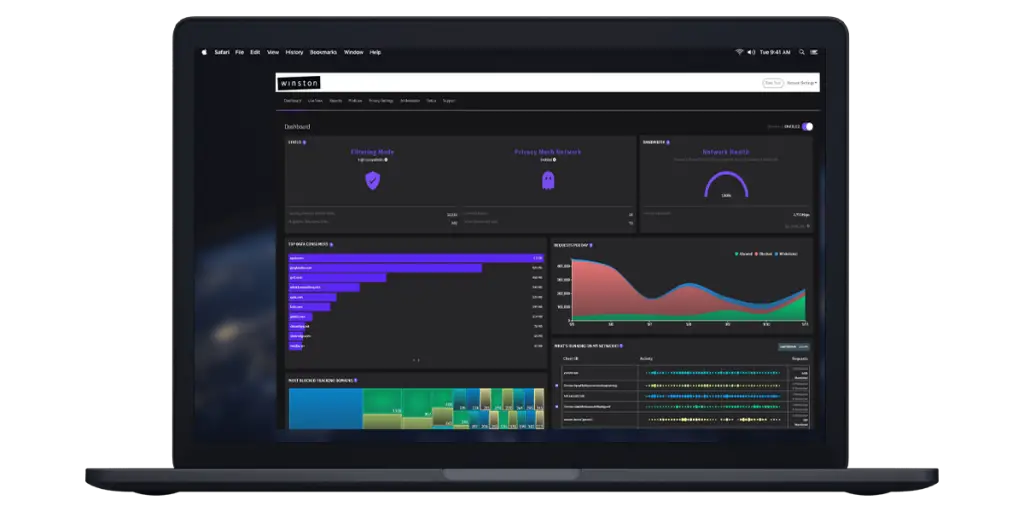
Winston isn’t only a physical device—it also includes a plethora of useful software to take advantage of.
The primary piece of software is the “dashboard” and “browser extensions,” where you control how you want Winston to help protect your data.
To identify just a few, it permits you to:
- Block Ads
- Prevent Fingerprinting
- Block Cookies
- Change Aggressiveness
- Filter URLs
To say that it easily surpasses most VPNs in features is an understatement. The dashboard is a place to manage every part that Winston offers.
As a full-time writer, I find Winston especially helpful, as I’m regularly visiting hundreds of websites every day to ensure proper research. That means thousands follow me.
Winston Protects Your IP Address
The main feature of a VPN is to change the IP address that sends and receives data packets to and from servers, such as Google.com.
IP addresses contain all sorts of information, such as your location, the type of device you’re using with it, and much more.
Some servers save your IP address for a few reasons, whether it be for marketing reasons, keeping tally for server bans, and more.
Winston has a bit of a different approach to this; your IP does not change; it’s just thrown into a pond of other Winston users, making it challenging to determine your IP location.
Plus, VPNs can prevent DDoS attacks, which is unlikely, but the feature is nonetheless helpful.
Winston helps to do this by taking advantage of P2P connections.
It Benefits From P2P Connections
You’ve probably heard of the word “torrent,” which is a term used when downloading a file from multiple “peers” or, in other words, “people.”
Torrenting isn’t always illegal, especially if the file in question isn’t copyrighted.
Nevertheless, torrenting is a pervasive way to download files, and many VPNs take advantage of this and include P2P (Peer to Peer) protection.
It works by simply changing your IP address and throwing it into a pool of thousands of others, making it difficult to trace the file transfers back to your legitimate IP address.
P2P is also helpful for individuals who live in third world countries and either need to receive or send news that isn’t favored by their government.
However, most P2P files are related to torrenting movies, games, and other files alike, which is not legal in most cases.
Winston supports P2P connections, but not torrents; after all, it’s the primary way they protect your data. This is a big reason why they’re able to provide so much protection to their users.
The Data is Encrypted
VPNs encrypt any data that is sent and received over the network. Any data transferred over a network is not encrypted in everyday situations, meaning the contents are exposed.
Typically, the data is viewable to ISPs, but can also be breached and viewed by those with bad intent. VPNs help avoid this by encrypting the data.
Winston Privacy encrypts all of the data that is transferred to and from the device.
Keep in mind that some will VPNs log data, meaning that not only can they directly view your information, but they can share that data with authorities.
This is why it’s essential to go with a company that does not log data and ensures proper encryption because excluding the IP ultimately protects your data.
Winston Protects Where VPNs Can’t
Lastly, Winston can protect devices that cannot take advantage of VPNs, such as smart TVs, google home, amazon echo, and more.
The devices are connected to the internet, likely directly through the router, connected to Winston.
This makes it so every data packet sent and received is filtered directly through Winston. If any trackers or fingerprints attempt to activate, they will be instantly shut down.
You’ve probably heard the rumors of specific household devices “listening in,” but with Winston, this worry is no longer a concern, which is something unavailable via most VPNs.
This is by far the strongest aspect of Winston, although it still retains its strengths elsewhere, such as filtering out adult content, ads, and much more.
Winston Privacy Product Images and Video
Here is a selection of product images:
Make sure to check out this informative video:
Frequently Asked Questions
Does Winston Log My Data?
Many VPNs claim to be ultra-secure and assure that any data is kept safe, yet fail to recognize that they store your data by placing the facts in the fine print.
Winston does not collect or store any data except for telemetry on the device’s health.
Most data that passes through the device and software is never stored and is completely wiped as soon as the data transfer is finished.
Can Winston Replace My VPN?
Although Winston provides an unmatchable amount of security, it cannot replace a VPN, although it can come very close to doing so.
Winston works by throwing your data into a pool of other users’ data, which makes it very challenging to determine whose data is who.
This is not like a regular VPN, though, as traditional VPNs change your IP address and often spoof your location to an area far away. This does not mean, however, that Winston isn’t secure.
What Does It Not Protect?
There are a few things that Winston is not made for, in particular, P2P torrenting and location spoofing. As explained previously, P2P is the act of file sharing, usually through multiple peers.
If you plan to use P2P for torrenting legal files, these are best managed by regular VPNs. It’s important to remember that these things are not needed to ensure privacy.
Winston is best used to protect you from legal practices, although it still provides security against illegal threats.
Verdict
Winston Privacy is unlike any other, and that’s a fact. For a while, most people who have been concerned with their online security have opted to use a regular VPN.
However, most VPNs only encrypt and mask data, often very poorly, depending on the company and their terms.
Yet, Winston Privacy provides many of the same features, except more. To get these features elsewhere, you’ll need to install countless programs.
If you opt to install programs, they’re still not going to stop fingerprinting, and other sketchy acts like Winston does, primarily through smart TVs or smart home devices.
To get the most security out of Winston, I’d suggest setting everything to the strictest options available and whitelisting the programs you trust most.


